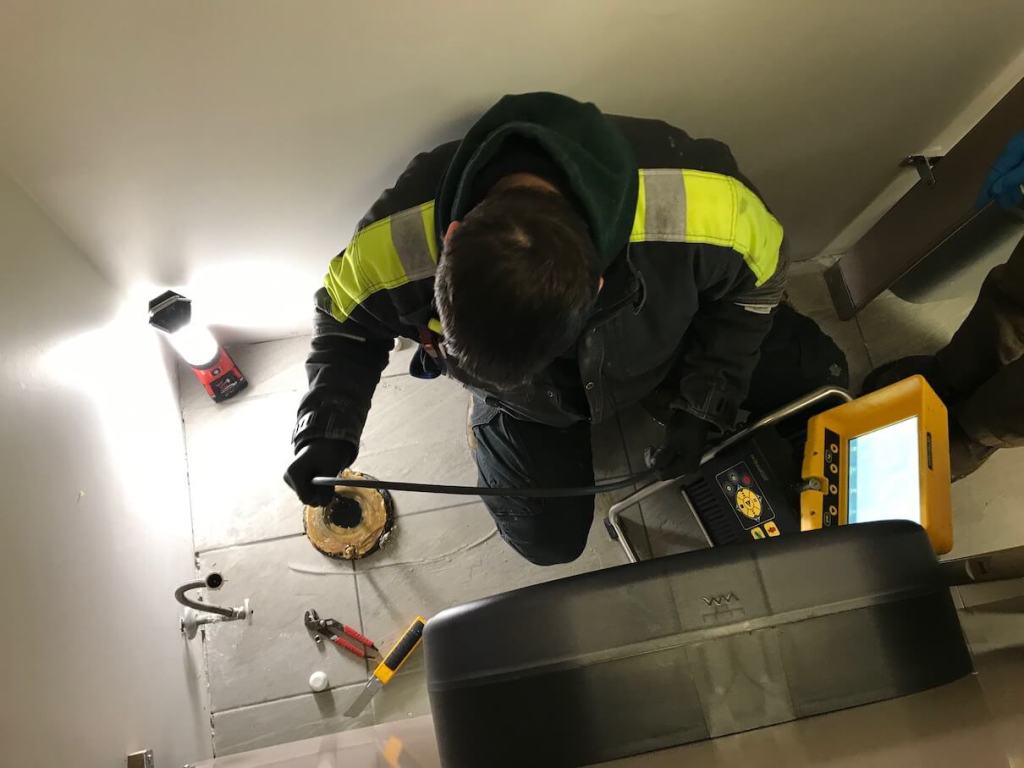When most people hear the word sewer, there’s nothing but negative connotations attached to it. We think of bad smells, rats and other filthy vermin, pollution, and just pure nastiness!
Therefore, it’s crucial that we must have a sewer backup prevention plan to avoid this ‘smelly situation.’ In our opinion, this is the least we can do to ensure our environment is kept clean.
So, with that in mind, here are six ways can achieve this tranquil stink-free atmosphere.
Ready to get going? Great. Let’s dive in!
Why Do We Need Sewer Backup Prevention?

One of the most obvious reasons is that raw sewerage negatively impacts the environment around us. Without beating around the bush, you are putting your own life and the life of others in jeopardy.
Even trying to clean up your contaminated sewer is more than the average task, because of the danger it imposes on others, it requires a specialist who knows what they’re doing (and not just any old Tom, Dick or Harry) to come in and do the job.
What’s Sewer Backup?
Every city has a sewer line that follows along beneath the street, linking to all the houses in a given area. The purpose is to flow out through the sewer line; however, sometimes this doesn’t happen.
It flows back into the houses, creating a contaminated pipe full of all the unwanted waste disposal from every home in the street.
Different Types of Sewer Backup Prevention

There are a few ways to prevent sewer backup, including:
1. Handle Grease with Care
One of the things that people tend to lack knowledge on, and it is one of the main causes of sewer backup, is to do with poor disposal of greasy products.
For example, we all know that oil and water don’t mix.
However, why are we not smart enough to know that dumping your leftover vegetable oil or your fatty lard or butter from last week’s Victoria sponge down the sing is a terrible idea? Is it so hard to dispose of your waste correctly?
It doesn’t take a genius to know that when your oil cools off, it is going to turn it to a thick and solidified substance that will just be clogging up your drainage system.
Apart from this, grease is difficult to remove because it’s sticky. Therefore, it will cling to the walls of your pipes and the sewers.
Actually, fats and grease are a regular cause of sewer blockage, and it is not only time consuming to remove, and extremely expensive for that reason.
The moral of the story is; dispose of your products in the right way. Make sure all your oil and grease deposits are scraped straight into the trash.
2. Keep it Clean
Prevention is always better than cure!
It’s so much better to avoid putting yourself in a situation where you have to pay a ton of cash to fix your sewer.
So, just clean your drain regularly.
The trick is in baking soda. Wasting money on all these expensive and sometimes even nonsense so-called drain cleaners.
Do things the old-fashioned way and get a good old cup of baking soda and dash it down your drain. Always think of tomorrow today.
3. Flush it the Right Way
Too many people pay little attention to what they put in the toilet. The purpose of loo is for you to do your dirty work and flush away the waste. If this is the case, why are drains being filled with all sorts of trash;
- Women’s creams and lotions,
- Blue paper towels
- Babies diapers
- Filthy rags
- Cleaning products
Some of these things are just a question of common sense.
4. Conduct Exhaustive Examinations
It is always better to be safe than sorry. The average person doesn’t just have expert knowledge on sewers, but why not get a professional to have a look at it before you end up in a pickle.
Sure, it might cost you, but I can guarantee that it’s going to be a lot cheaper than if it has to be completely unblocked!
When you get a specialist involved, then it makes life a lot easier. They can pre-empt a potential issue before it arises, and give you the correct advice on how to prevent it from happening.
5. Tree Roots
Beaten up and broken pieces of tree bark are another thing that creates sewer backup. The cause tiny little cracks, which at first seem harmless, but whatever is small at first tends to grow.
When these cracks grow, they pose a big problem and can seriously damage the sewer pipes. This is worse with clay pipes. These are more likely to suffer such cracks than your standard plastic pipe.
6. Backwater Valves
Installing a backwater valve is one of the best ways to prevent sewer blockage. This could potentially diminish the chances of backflow in your pipes. It causes water to flow from bathtubs, sinks, and anywhere else it flows from to exit into the sink nicely.
It has an automatic valve that will shut when water is flowing back in an undesired direction. The only downside is that it’s only fitted to certain households and not all.
At the End of the Day
Sewer backup prevention is so important, and we’re here to give as much detailed advice as possible. For more info like this, be sure to subscribe to our blog!






